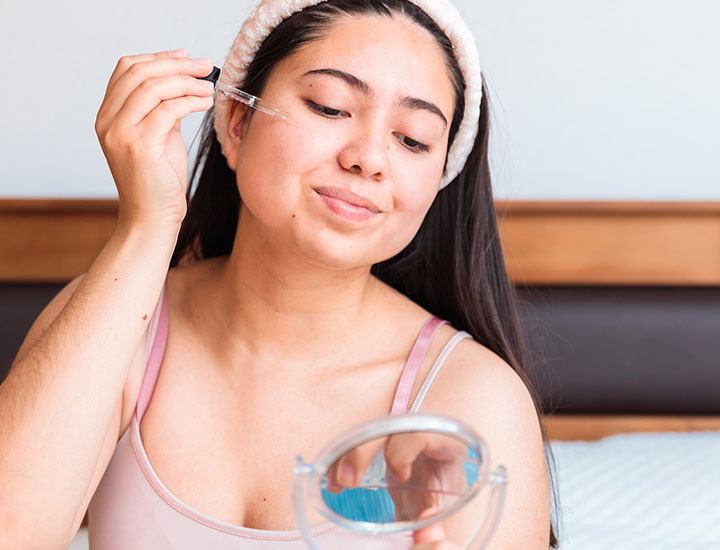
Are Drugstore Retinol Different From Luxury Brands & Prescriptions?
Although you can see some results from a drugstore retinol like Neutrogena, it’s important to understand why luxury brands charge so much more and what you can expect from them — or from an even more powerful prescription Retin-A.
“Drugstore retinol is less expensive than its luxury counterparts,” Dr. Sobchak says. “They also contain more basic ingredients that may not provide as powerful results as those found in high-end products.
In order to guarantee greater effectiveness and more durable results, luxury skincare brands frequently use higher concentrations of active substances, according to Dermatologist Anna Chacon, who is a writer at MyPsoriasisTeam, who adds that even if the skincare product you buy at the pharmacy has comparable ingredients, you'll typically get greater value from a luxury brand.
And when you add prescription retinol and Retin-A creams into the equation, you’re more or less dealing with a different product altogether. “Retinols are not as strong as prescription-grade retinoic acid,” Dr. Sobchak says. “Therefore, it takes longer for results to show compared with a higher dose treatment like Retin A. Retina A has groundbreaking efficacy in improving many common causes behind premature aging. Its main active ingredient works at a cellular level, helping increase cell turnover rate.”
Dr. Chacon says prescription formulas and over-the-counter retinol differ from one another in terms of depth and speed. “[Prescription-based] Retin-A repairs your skin instantly by penetrating deeper layers of the skin right away,” Dr. Chacon says.
How To Use Retinol
Whether you opt for a drugstore retinol, a luxury brand, or a prescription cream, the advice is the same: start slow and low, says Josh Sim, an aesthetic consultant and preventative aging expert who founded Monteceuticals and Studio Montecosmet.
“Retinol can be irritating to the skin, especially if your skin is already sensitive, and can cause the skin to break out, become dry, or inflamed,” Sim says. “To prevent this, start by using it once a week, then gradually increase it to every other night or every night if your skin can tolerate it. Consistency is key when it comes to using retinol, and it can take several weeks or even months to see results, so it's important to be patient and stick with it. Retinol also comes in different strengths, ranging from 0.01% to 2%, so if you're new to retinol, I suggest starting with a lower concentration and working your way up as your skin becomes more accustomed to it.”
As far as application tips go, you should only ever apply retinol to clean, dry skin, Sim says, and suggests applying it after cleansing and toning. Before applying your next product, allow the retinol to fully absorb — this is especially important with other potent ingredients like acids (such as salicylic acid) or vitamin C products which can cause irritation if used together, according to Sim. “My advice is to leave a few hours between these products, such as using an acid-based toner in the morning, and your retinol at night to give the skin time to settle.”
One last note: you know how you should never, ever leave your house with sunscreen on? Well, that goes triple when you apply retinol the night before. “Retinol can make your skin more sensitive to the sun, so it's best to use it at night rather than during the day, otherwise, you put yourself at risk of sunburn and skin damage that can lead to discoloration, scarring, and even premature aging,” Sim says. “Even if you apply retinol at night, I always recommend applying sunscreen to protect your skin during the day just to be safe as your skin will likely still be sensitive.”


